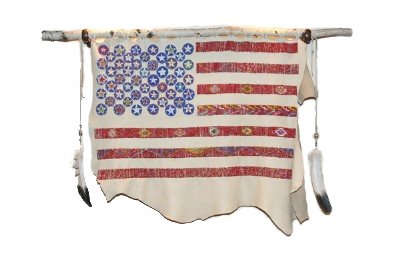The Journey of Crazy Horse, by Joseph M. Marshall, III
A slim (294 pages) but engrossing biography of the great Lakota war leader Tasunke Witko ("His Horse is Crazy"), Marshall's book is subtitled "A Lakota History," and indeed the book is written by a Lakota author from a uniquely Indian and Lakota perspective. By placing Crazy Horse's action firmly within the context of a Lakota culture being slowly transformed by contact with the Long Knives, Marshall is able to introduce readers to the man, not merely the legend. For example, I learned that "Crazy Horse" was a family name, belonging to his father (a well-respected medicine man who changed his name to "Worm," as a sign of humility) and his grandfather; and that Crazy Horse himself was a Contrary, or Thunder Dreamer, which explains much of his later life. Like the story of Tecumseh in A Sorrow in Our Heart (written by non-Indian Allan W. Eckert), Journey assumes as valid oral history traditions and takes as true the spiritual experiences of its subject (of course Tecumseh caused the New Madrid Earthquakes by stamping his foot on the ground; of course, Crazy Horse had a vision of his life and eventual death as a young man). The account of the Battle of the Greasy Grass may seem somewhat hard to recognize, until you realize it is being told from the perspective of the victorious Indian alliance, not George A. Custer or his hagiographers. Likewise, Marshall does not over-sentimentalize the Lakota, or red-wash the complicity of certain members of the tribe (particularly the Laramie Loafers) in bringing about their own defeat. He concludes, and rightly so, that the Lakota defeated themselves by surrendering to the materialism of white civilization. Overall, Journey (which includes personal anecdotes from the author's life) has the feel of a story the elders might tell over a campfire. Very satisfying.
Labels: Book Reviews


0 Comments:
Post a Comment
<< Home